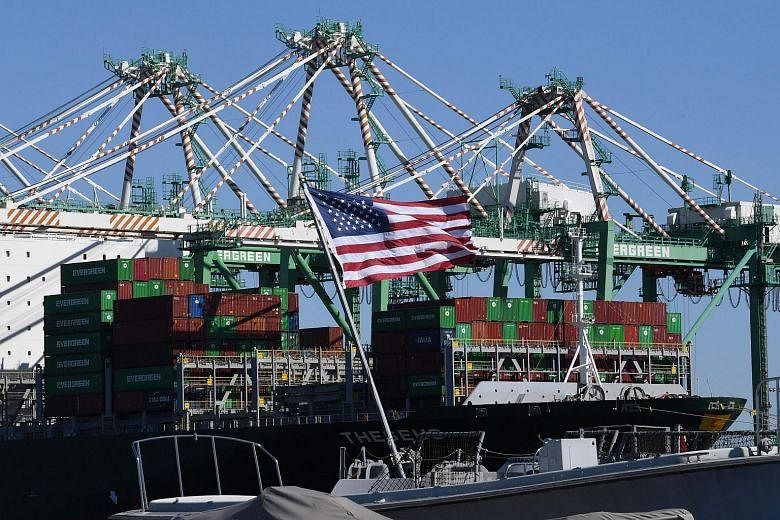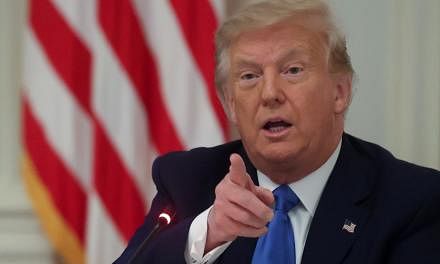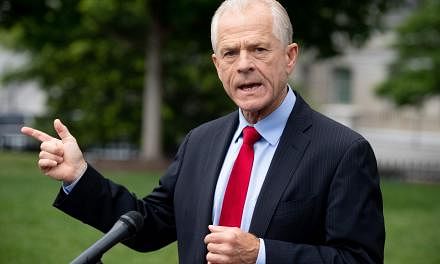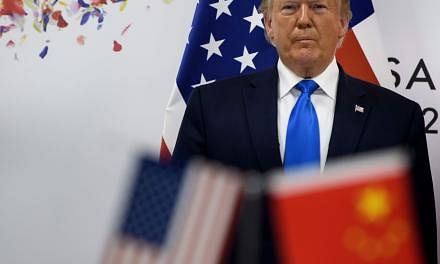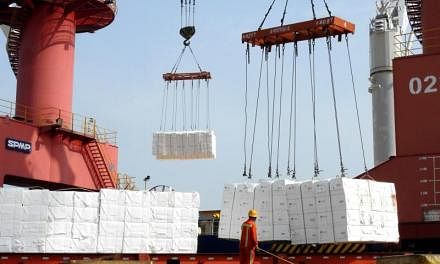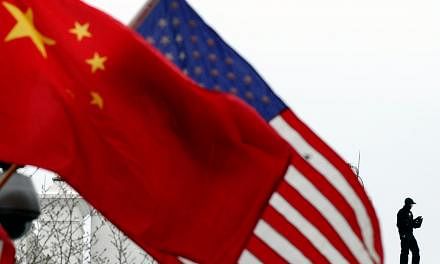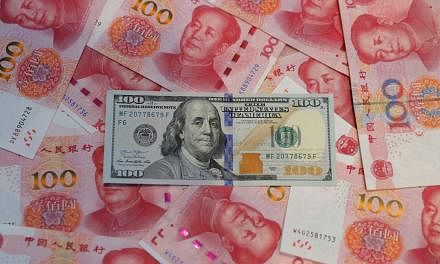WASHINGTON • The US and China have started to outline commitments in principle on the stickiest issues in their trade dispute, marking the most significant progress yet towards ending a seven-month trade war, according to sources familiar with the negotiations.
The two largest economies in the world have slapped tit-for-tat tariffs on hundreds of billions of dollars of goods, slowing global economic growth, skewing supply chains and disrupting manufacturing.
During high-level talks, which began yesterday and continue today in Washington, officials remain far apart on demands made by US President Donald Trump's administration for structural changes to China's economy.
But the broad outline of what could make up a deal is beginning to emerge from the talks, the sources said, as the two sides push for an agreement by March 1. That marks the end of a 90-day truce that Mr Trump and Chinese President Xi Jinping agreed to when they met in Argentina in December.
Negotiators are drawing up six memorandums of understanding (MOUs) on structural issues: forced technology transfer and cyber theft, intellectual property rights, services, currency, agriculture and non-tariff barriers to trade, according to two sources familiar with the progress of the talks.
China is proposing that it could buy an additional US$30 billion (S$40 billion) a year of US agricultural products including soya beans, corn and wheat as part of the MOUs , according to the sources, who asked not to be identified because the plans are confidential.
The purchases would be on top of pre-trade-war levels and continue for the period covered by the memoranda, they said.
China has repeatedly offered to increase purchases of agricultural and energy products to shrink the US trade deficit. Since December, it has resumed imports of some farm goods like soya beans. Mr Trump this week said "a lot of" corn would be next on Beijing's shopping list.
Chinese Commerce Ministry spokesman Gao Feng yesterday declined to comment on the MOUs.
The MOUs cover the most complex issues affecting the trading relationship between the two countries and are meant, from the United States perspective, to end the practices that led Mr Trump to start levying duties on Chinese imports in the first place.
One source cautioned the talks could still fail. But the work on the MOUs was a significant step in getting China to sign up both to broad principles and to specific commitments on key issues, he said.
The two sides are discussing an enforcement mechanism for the deal, the source said.
Several Chinese government sources told Reuters that the two countries have basically reached a consensus on alleviating the trade imbalances, but there were still some differences on each other's "core demands".
"We are now in the sprint phase, and both negotiating teams are working towards the goal of reaching an agreement within the deadline, but some problems are still quite complicated to resolve," said one Chinese official.
Washington has accused Beijing of forcing American companies doing business in China to share their technology with local partners and hand over intellectual property secrets. China denies it engages in such practices.
Trump administration officials also object to non-tariff barriers in China, including industrial subsidies, regulations, business licensing procedures, product standards reviews and other practices that they say keep US goods out of China or give an unfair advantage to domestic firms.
On currency, US officials including Treasury Secretary Steven Mnuchin have warned China against devaluing its yuan to gain a competitive advantage after the Chinese currency weakened significantly against the US dollar last year, partly counteracting Mr Trump's tariffs.
REUTERS, BLOOMBERG
